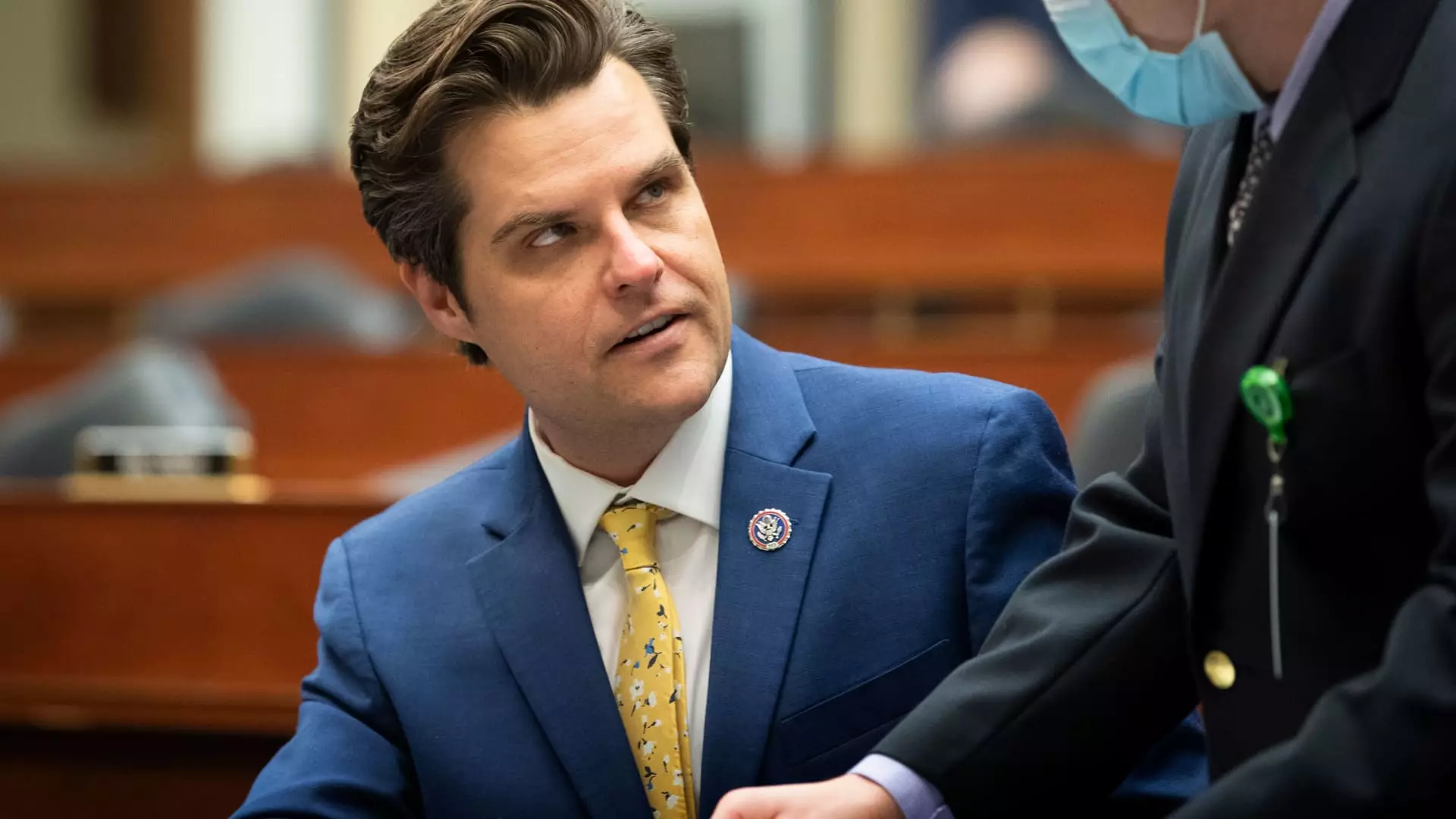The House Ethics Committee has taken a significant step by voting to release a report concerning its investigation into serious allegations against former Republican Representative Matt Gaetz. This report, which has been the subject of much speculation and narrative, is poised to make waves, especially as it highlights issues surrounding sexual misconduct and drug-related accusations. With the intended release coming at the end of the congressional session, the timing adds an extra layer of intrigue.
Matt Gaetz’s Reaction and Denials
As news broke about the committee’s vote, Gaetz’s immediate response was anything but subdued. He took to his social media platform, X, to vehemently deny the allegations, particularly accusations regarding sexual activity with minors. His assertion that any claims against him would be easily refuted in a legal setting, along with his emphasis on supposed past indiscretions that he considers non-criminal, reveal a man adamantly defending his legacy amid stormy waters. Gaetz stated, “It’s embarrassing, though not criminal, that I probably partied, womanized, drank and smoked more than I should have earlier in life,” attempting to dissociate himself from the more severe allegations that have haunted his political career.
Additionally, he has criticized the Ethics Committee and the report’s imminent release, claiming that the investigations he faced from the Department of Justice (DOJ) had exonerated him. In his view, the ethics panel’s actions raise questions of fairness, especially since he believes he has not been afforded the opportunity to address the committee’s findings prior to the report’s public unveiling. This sentiment taps into a broader narrative about accountability and fairness within the political arena.
It is noteworthy that the Ethics Committee maintained a level of discretion throughout its deliberations. In November, the committee struggled to reach a conclusive decision on releasing the report, especially in light of Gaetz’s resignation from Congress after he was initially chosen by Donald Trump for the attorney general position—a selection that quickly crumbled in the face of mounting allegations. Gaetz’s resignation marked a pivotal turning point, leading many observers to question whether the committee’s jurisdiction over him had effectively diminished.
On one hand, this internal deadlock reflects the polarized environment in which the Ethics Committee operates, with bipartisan tensions further complicating matters. The committee comprises both Democratic and Republican members, and any investigation into a sitting or former member’s conduct invites scrutiny from all sides. The delay in decision-making emphasized the sensitivity of the situation, whereas the committee’s eventual vote to proceed with releasing the report signals a commitment to transparency—albeit one that Gaetz perceives as a direct affront.
The implications of releasing the Gaetz report extend beyond just this singular case. It touches on issues of ethical conduct in Congress and the expectations of elected officials. For instance, House Speaker Mike Johnson’s call to withhold the report’s release mirrors a concern among some party members that doing so for a former member could set a damaging precedent. Yet, precedent exists, as the Ethics Committee has released findings related to former members in the past, leading to questions about consistency and accountability in upholding ethical standards.
This situation serves as a microcosm of the broader ethical challenges facing Congress. With the public increasingly demanding accountability from its representatives, the release of findings related to misbehavior can serve both as a deterrent and an indictment of Congress’s commitment to ethical conduct. While Gaetz insists on his innocence and condemns the process as flawed, the potential unveiling of the Ethics Committee’s findings could prompt a renewed call for reform regarding how allegations against members of Congress are addressed, both during and post-tenure.
The forthcoming report from the House Ethics Committee is set against a backdrop of modern political scrutiny and ethical misconduct. While Gaetz continues to fight against the implications of the accusations, the ramifications of the committee’s actions are likely to echo throughout the political landscape. As public interest swells, the pressures on Congress to act with integrity and transparency continue to mount. Ultimately, the outcome of this investigation may influence not only Gaetz’s legacy but also how future cases of ethical breaches are handled—the echoes of which could resonate well beyond the halls of Congress.


Leave a Reply